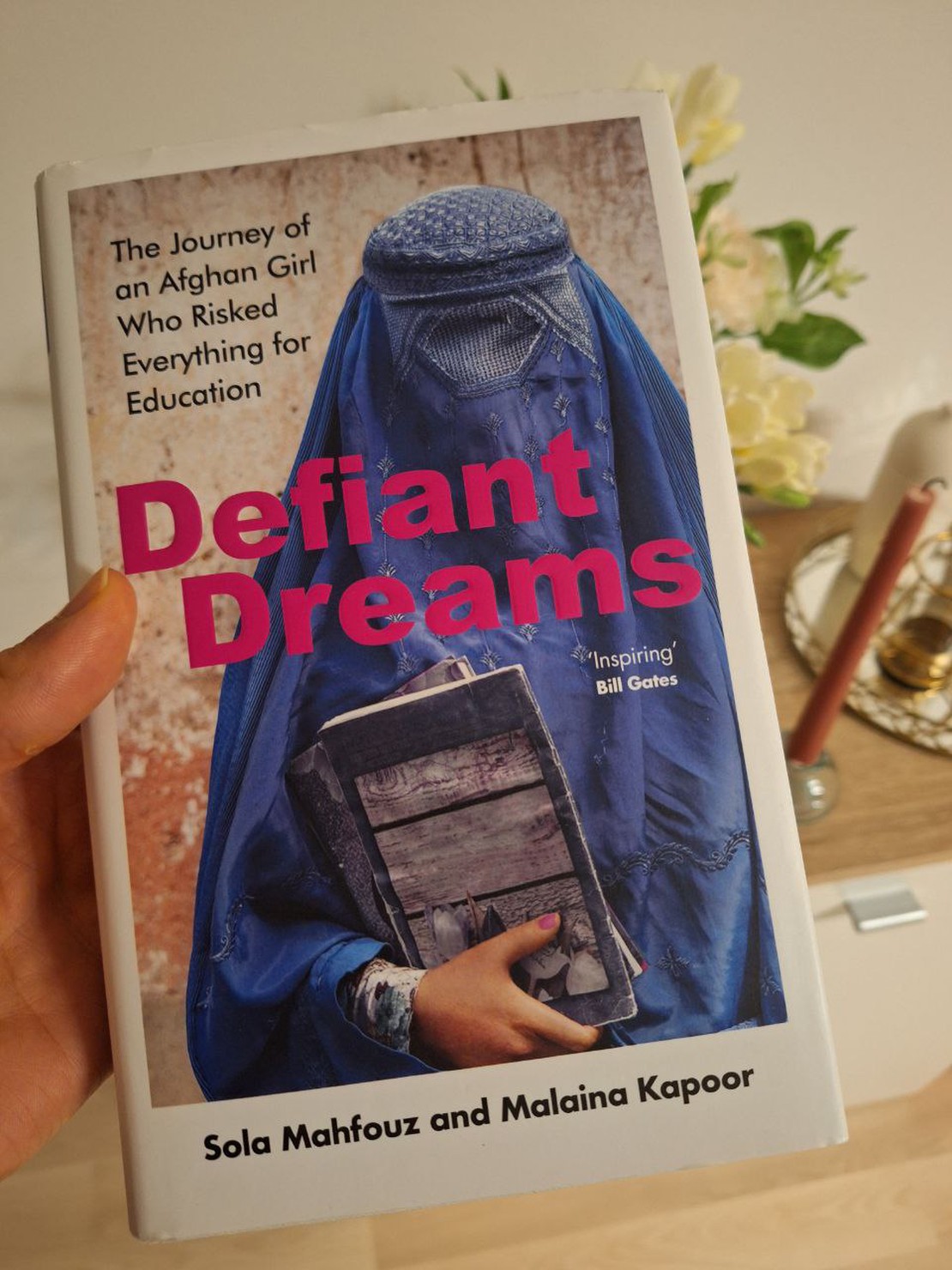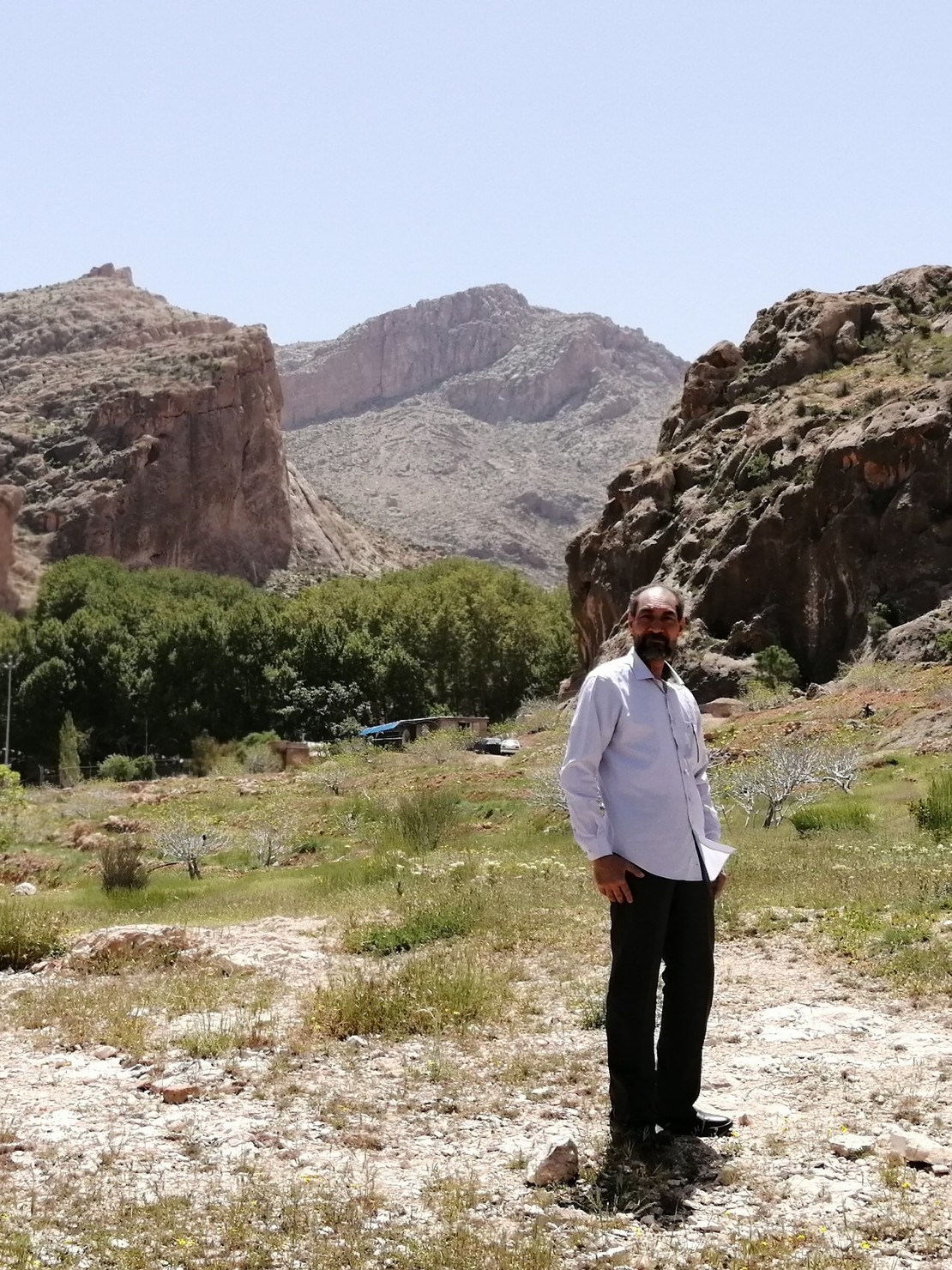
Defiant Dreams Review
- Navid Mousavi
- Book review
- October 27, 2023
I came across the book’s advertisement in the APS’s Physics Today magazine, and being an Afghan physicist, I ordered the book right away.
As the title suggests, the book describes the extremely hard journey of Sola (pseudonym), an Afghan girl from Kandahar, towards education and a free life. The story is very motivating, and the book is written in a nice narrative that summarizes the recent history of Afghanistan. It covers her parents’ childhood when Afghanistan was a monarchy under Zahir Shah and the many coup d’états that happened. It delves into the wars with the Soviet Union and the rise of Islamic jihad in Afghanistan, the prolonged civil wars, and life under the Taliban regime. The U.S. invasion and the establishment of a new government until their withdrawal in 2021 are also explored.
Some of the earlier events, particularly those involving her parents, resonated with me, as I had heard similar stories from my own parents who witnessed them firsthand. For example, my father was on a bus in Kabul going to school when Daoud’s coup happened in 1973. Reading Sola’s memoirs felt personal, as it connected with the experiences and stories shared within my own family. The more recent events (over the last 25 years) were events I had been following closely, despite being born in Iran and not residing in Afghanistan. As a refugee, my life was always entangled with the incidents in Afghanistan.
Even though I had a general understanding of the situation in Afghanistan through communication with relatives there, Sola’s account shed light on many specific details of life in Kandahar, a region distinct from Kabul where my relatives are living. She highlights these differences, particularly when she describes her visit to the U.S. embassy in Kabul.
There are a couple of sad observations from her memoirs that I could not handle due to the absurdity. For instance, the story she tells about the first English teacher she had in her youth in Kandahar. The teacher was born in Canada to Afghan parents and grew up there, yet her parents were so cruel as to send her back to marry a man 18 years older than their daughter in Afghanistan. How could someone treat their own daughter this way? Even after living in a country like Canada, they remained the same people. I can somewhat understand this happening in an environment where everyone does it, but not when someone is born in Canada. This scenario points to a significant failure in integration policies, where the social pressures from relatives in Afghanistan appear to outweigh the values and opportunities provided by the new society. Even if there are parents making such unimaginable choices, I believe it should not be allowed to happen to a girl born in a place like Canada, who most probably went through a free country education system as well. There ought to be awareness and structures for vulnerable people to report and fight back. The story is devastating. She mentions a similar story when she visits one of her relatives in New York, which is happening right now and is a current issue. It is not possible for me to believe that there are people right now imprisoning their wives and daughters in places such as New York!
Another point that caught my attention was that she never mentions help from her father. It’s always her mother, “Moor” as she calls, that accompanies her. It’s perplexing to note that Sola’s father always had a strong desire to stay in Kandahar, even under the partial rule of the Taliban. The reason is not very clear to me. The question also puzzles Sola, as she mentions a couple of times in the book. I cannot think of a business that could not be moved to another city in Afghanistan, somewhere with more freedom or at least safer. Despite being financially secure, as it sounds, and having the means to send the boys for education to private schools and even abroad, he chooses to stay in Kandahar. This opens up space for speculation that the father was also a supporter of Taliban ideas, despite being educated. However, in comparison to relatives, he was relatively open-minded. This did not prevent Sola from going to the U.S., as she quotes her father’s cousin in New York telling her, “I don’t understand how your father let you come alone to the United States. I would rather die than send my daughter alone to a new country.” But at the end of the book, the only time her father decides to leave Afghanistan is when the Taliban regains power after U.S. troops leave the country. This suggests that even individuals who might support some of the Taliban’s ideas are fleeing their government.
It’s important to note that these events largely occurred during the 20 years when the U.S.-backed government held power in Afghanistan until 2021. During this time, the media was relatively free compared to countries like Iran. I was hopeful that this freedom and the spread of internet connection could change the situation in Afghanistan. However, reading about the accounts I mentioned above, it seems that a majority of men in Afghanistan are not tolerant of women’s freedom and right to live as a human. Setting aside the freedom of media, they maintain the same attitude even in free countries, as Sola describes her relatives. This is distressing! It’s worth noting that she describes how they watched “Afghan Star,” a singing competition featuring numerous female singers, yet they exhibited cruelty toward women in real life. I couldn’t reconcile the situation described in Kandahar with what I saw on Afghan TV, which showcased empowered women, including female reporters, hosts, singers, and even a few politicians. Perhaps if the U.S. had remained for another 20 years, the new generation, like Sola’s nephew Hamid, might have undergone transformation and grown up with a view of women as equals. However, with the U.S. withdrawal, everything has regressed to the state it was before the invasion. Regrettably, the U.S. concluded that it had failed to alter the situation there and couldn’t allocate further resources to combat the Taliban. Maybe this is a valid conclusion, and it is the women in Afghanistan who must assert their rights independently; otherwise, improvement may remain elusive even with foreign intervention. Propaganda that Americans or the West aim to corrupt women will persist, and deeply religious segments of Afghanistan will most probably succumb to such beliefs, feeling compelled to oppose it. However, if the women within Afghanistan collectively reach the realization that they’ve had enough, a transformation may be possible. Nevertheless, this struggle is marked by fear and violence. Even Sola advises her nephew not to talk about women’s rights and freedom. After the Taliban’s takeover, there have been many protests by women, but unfortunately, they have all been suppressed by the Taliban. Activists have been imprisoned, and violent punishments will follow people who raise their voices.
The similar situation is now ongoing in Iran. The Zan, Zendegi, Azadi movement (or as some call it, revolution) is the result of women standing up and shouting out loud that they have had enough. The situation of women in Iran is far better than in Afghanistan; however, the same kind of extremism and view of women is present in Iran as well. Many believe that this is mostly because of the Islamic Republic regime; however, I think the cultural and religious beliefs of the society are the main problems that support the oppression of women. Sola’s book amazingly shows this deep cultural problem. Fathers, similar to Sola’s father, and brothers, such as her brothers, do not see women as equal, capable, free, human, and this is a main reason why regimes like the Taliban or the Islamic Republic can continue to thrive, in my opinion.
People like Sola had the courage to have a dream and fight for it. However, Sola is fortunate enough to succeed, but there are countless others that fail. Although I have never lived in Afghanistan, except for a 10-day visit to Kabul and a 3-day stay in Herat to get Afghan identification in 2012, my life has always been affected by it and its developments.
In the end, I have to say that I am very happy for Sola that she could overcome this fight and find a way to a free life. I know how hard it is to fight for recognition and against being ignored all the time, as growing up as an Afghan refugee exposed me to numerous discriminations and struggles. However, I was lucky enough not to live under constant suicide bombings and airstrikes. I enjoyed reading her memories and recommend reading this inspiring story to everyone. At the same time, I have to say that I feel very sad about the situation that is getting worse and worse in Afghanistan every day, especially for women, and wish they can also become free and have a decent life, being able to dream and reach their dreams.
